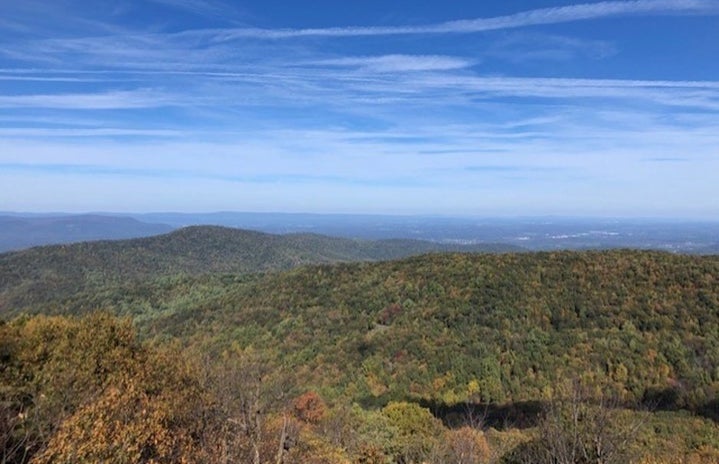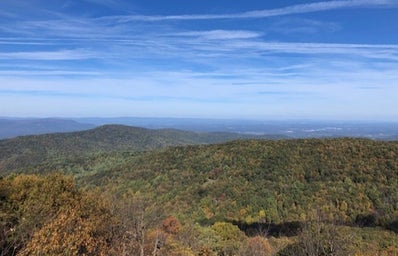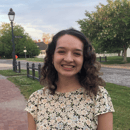Before 2020, most white people in our country had never noticed the systems of oppression that account for Black, Indigenous, and Latine people seeing the highest rates of death from Covid-19 and for the murder of George Floyd. Systems that have existed far longer than the 244 years of America’s history. Now, injustice is on the forefront of the American consciousness. Many communities are ready to take action toward achieving the elusive dream of racial justice. So let’s talk about how we can do the work.
Here at George Mason, there are a number of student-led organizations continuing the dialogue on social change in innovative ways. One such organization is the planning committee behind the second annual Virginia Environmental Justice Summit (VEJS). Made up of students from multidisciplinary backgrounds, VEJS is dedicated to bringing people together from across the state and nation to talk about equity and the environment.
“What’s fun is that we’re not all majoring in environment specific topics,” says Madison Rudolf, Marketing Subcommittee member, “it shows that the environment touches everything from finance, to business, to communication, to even healthcare.”
The goal of environmental justice (EJ) is to dismantle the systems that cause a disproportionate impact of environmental burdens on people of color. Advocates of EJ call for an end to unsustainable and unjust systems, such as racism, colonialism, and neoliberal capitalism. We see these systems pervade our day-to-day, and in Virginia, the pandemic made our history of oppression crystal clear.
Logistics subcommittee member and president of the Mason Environmental Justice Alliance, Dasha Maslyukova says, “Environmental justice to me includes examining the unequal distribution of resources due to race and gender, as well as looking at its intersections with public health, access to food and water, and the equal distribution of renewable energy.”
Because of its not-so-far away past of Confederate statehood, reliable status as a Democratic voting bloc, and proximity to Washington, D.C., Virginia sits at the crossroads of racial injustice and progressive change. Some pressing issues in Virginia include the removal and renaming of racist namesakes from our buildings, statues, and roads, inequities in Appalachia and communities of color, and of course, pipelines — Atlantic Coast and Mountain Valley — and union-busting Amazon.com. We have a lot of work to do in our communities and at a state-level to stop big business, promote food and healthcare access, and provide jobs that provide stable livelihoods and a healthy environment for all Virginians.
The current Virginia General assembly is working on some of these issues, such as abolishing the death penalty, but have light-years to go. That’s where activists come in.
VEJS originally began as the brainchild of Spring 2020 George Mason University alumna Emma Gregory. “It’s a place for every university student that’s interested in environmental justice to come together and learn,” says Gregory, “I didn’t want it to be a place for only students who have done a lot of activism or who have learned a lot about environmental justice.”
Though initially planned as an in-person conference, the date of the first summit coincided with the onset of the pandemic and lockdown last March. It was switched to a virtual format, and now is available for everyone to access for free from home.
Because of the commitment of this year’s committee, VEJS is able to return a year later in a world that is both different but also very much the same. This second installment, set for March 27, 2021, builds on the lessons of 2020 to highlight the connections between environmental degradation and social inequity.
Setting the tone of the event is a keynote speech from Jacqueline Patterson, Director of the NAACP Environmental and Climate Justice Program. Patterson has spent her career working at the crux of environmental and racial justice. In an essay written for Dr. Ayana Elizabeth Johnson and Dr. Katharine Wilkinson’s book “All We Can Save,” Patterson details that her work “centers on supporting frontline communities to advance their visions of liberation; it focuses on building power to actualize systematic change” (p. 201).
This year’s summit will expand on and address Patterson’s vision by featuring speakers from across the state of Virginia, including educators, artists, lawyers, and community organizers. In sessions held throughout the day, attendees will be able to learn about ongoing work in the environmental justice field and how to take actions to help their communities overcome systems of oppression.
In addition, George Mason University professors Dr. Maction Komwa and Dr. Michael Gilmore will be sharing their work in sustainability and conservation. Other speakers include Carlos Izurieta of DC Fair Foods, Josephus Allmond from the Southern Environmental Law Center, and Anna Clark, author of “The Poisoned City: Flint’s Water and the American Urban Tragedy.” A variety of topics will be explored at this free and virtual event highlighting the intersections of public health, food and water sovereignty, energy transition, and environmental racism.
“One of my favorite parts of the summit is seeing the array of professors, community activists, high school students, and college students like myself take part in meaningful conversations that help us all understand the various aspects of environmental justice,” explains head of the Curriculum Subcommittee Grace Loonam.
The goal of VEJS is simple: it is a catalyst for change. “I want students coming away from the summit knowing that they can make a difference and that environmental justice is critical if we are to solve the climate crisis,” says Maslyukova.
High school, undergraduate, and graduate students from throughout Virginia are encouraged to register, although anyone interested in learning about environmental justice is welcome to attend. More information about the event agenda, featured speakers, and registration can be found at VirginiaEnvJustice.org.
“Together, we’re able to raise awareness of important environmental justice issues and help lead a generation of students and youth towards building more equitable and sustainable systems throughout VA and the nation,” concludes Rudolf. The moment we are at in history is an opportunity. We just have to take it.




